My great-grandfather associated his passion for farm life with that of painting. A few miles from his home, in the region of "Bresse" in Burgundy, there were beautiful farms that pleased him a lot.
He often went, armed with his paint and watercolor notebook, to stand in front of the house of his choice, talk a little with the peasant, charm the farmer ladies and take a seat on his fold-out stool. Sometimes children came around him out of curiosity. If one of them dared to ask a question he would turn around, look at him and answer. His glass eye would surprise most children and it was rare that any other questions came to interrupt him in his work.
Watercolors
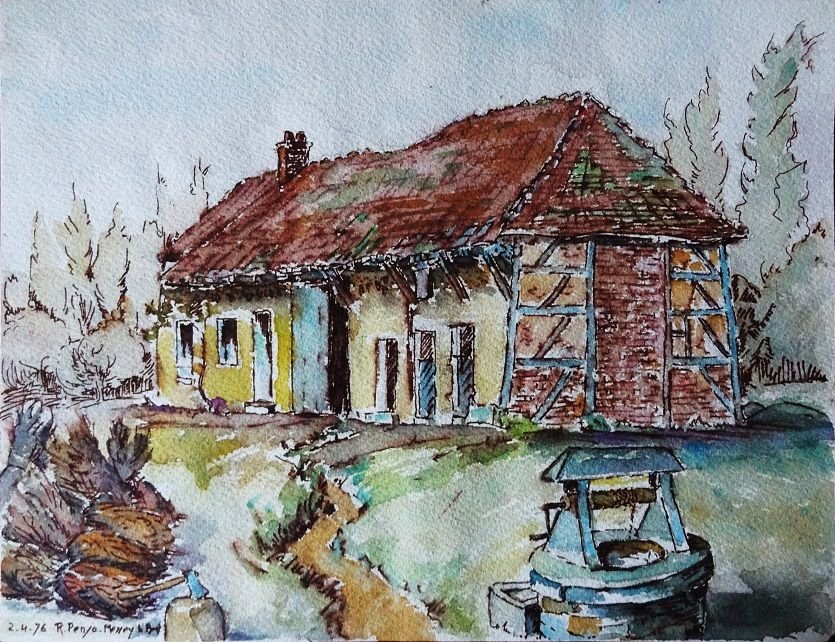_edited.jpg)
In "Bresse", stone is rare so houses are built of bricks, wooden planks and mud. Oak wood is the backbone of all farms. Whatever the shape of the roof, it always extends beyond the building in order to protect the walls. Attached to this extra section is where the farmer would hang his corn to dry - corn being an essential part of the poultry's diet.
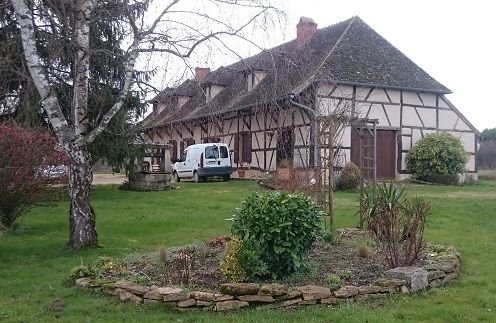 |
|---|
To try and give you a better idea of what these houses look like today, I drove to the villages to try and find them again. With only my great-grandfather's paintings in hand, you can imagine it was not an easy task to look for old farms which existed more than 60 years ago. A lot of homes have been built since then and many older ones have either been renovated or completely destroyed.
In each farmyard you can either see a well or a fountain. It is an indispensable part of the farm and could be shared with one or more neighbors. As you can see from both paintings, a trough was often placed near the well or fountain for the cows and horses to drink.
Tractors made their first appearance on Burgundian farms between the late 1950's to the 1960's.
The famous French motor vehicle Renault was one of the main provider. Some of the older red models can sometimes be found all rusty and overgrown with ivy, abandoned in fields or in old warehouses/mechanic's shop.
In his lifetime, my great-grandfather must have witnessed some massive advancements in the industrial sector. He represents this fast-changing era here by showing us the old and the new ways of ploughing: the horse and the tractor.
The Saône river which passes partly in Bresse often overflows. The day my great-grandfather wanted to paint this farmhouse, it had water right up to the front door. The flood of the Saone had once again reached the village of Gigny.
Unfortunately, I went searching for this house to show you what it looks like today, but never found it. It was a fun outing nevertheless.
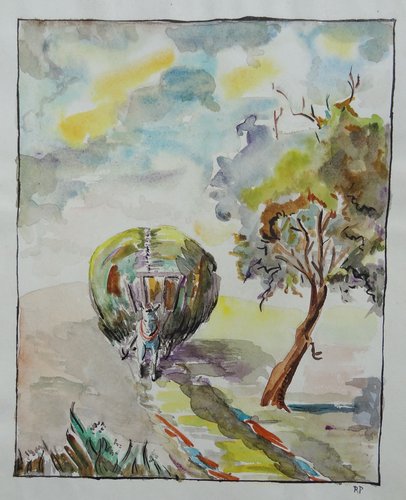 |
|---|
Beyond the artistic challenge, he enjoyed sharing scenes of the everyday life in the countryside. It was his way of showing his love for this environment.
To the left, he shows us a horse slowly pulling a hay cart on a summer evening.
On the right, a cow is calving. The farmer brings water and a towel to the two men who, with the help of a rope, help the cow extract its calf.
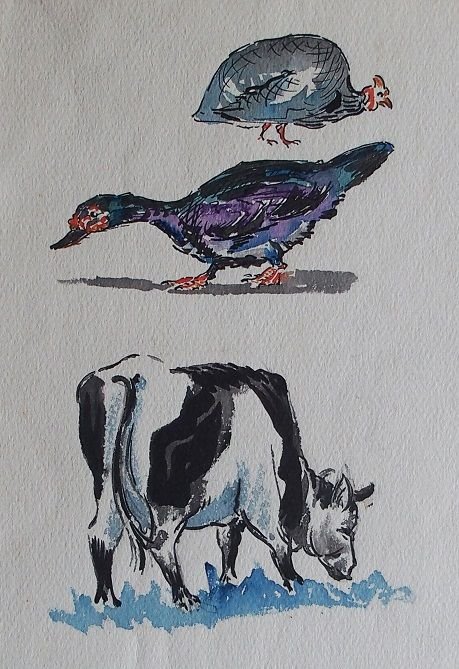
And to finish here, a few painted sketches of farm animals seen under various angles.
Life in the countryside, among the animals of his farm, was his greatest source of joy.
On the front door of the stable he had engraved what most reflected the meaning he had given to his life: RURIS AMOR, which means: LOVE OF THE COUNTRYSIDE.
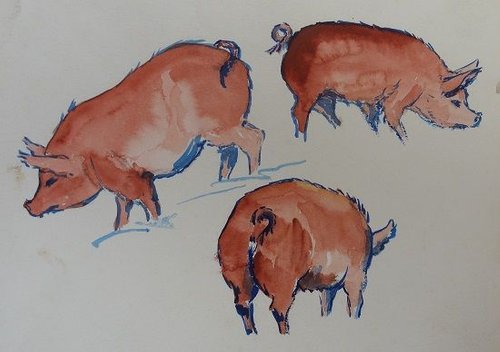 | 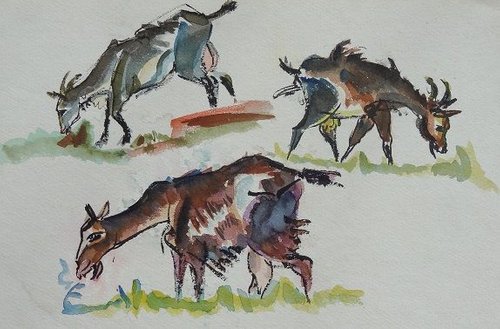 |
|---|
And since you've been so patient, here is a photo taken by my great-grandfather of my aunt riding a pig, 60 years ago. I had no idea pigs liked to be ridden! (see... it wasn't just clickbait)
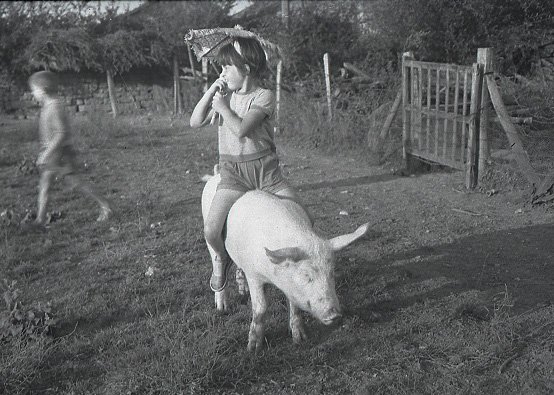

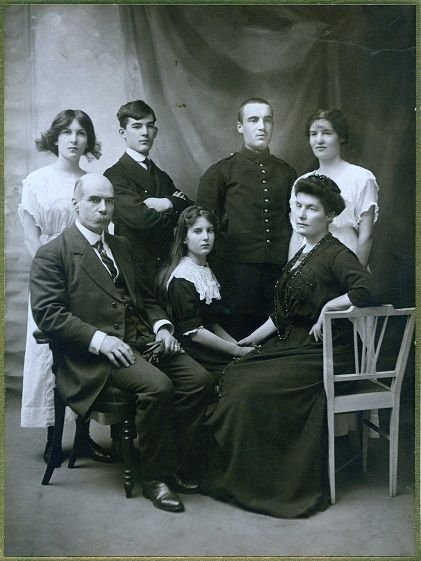
 Drawing + Coloring CONTEST |  The treasures left behind by my great-grandfather #9 |
|---|---|
 Zeitgeist Movement and Berlin Street Art |  Architectural Photography - Hong Kong |
“Learning is not a race for information, it is a walk of discovery” - Jane Healy

